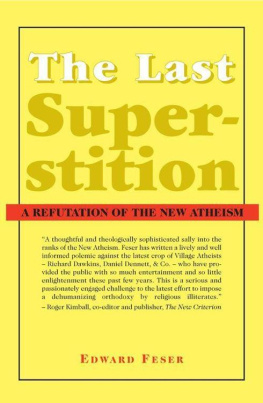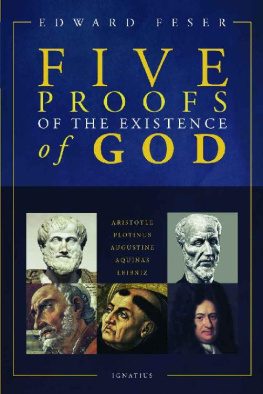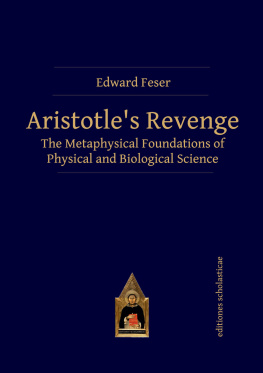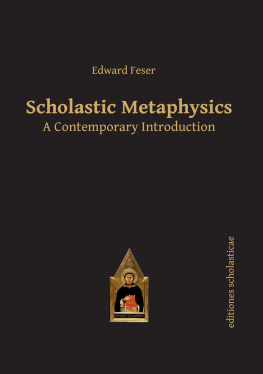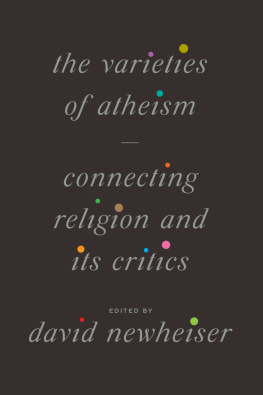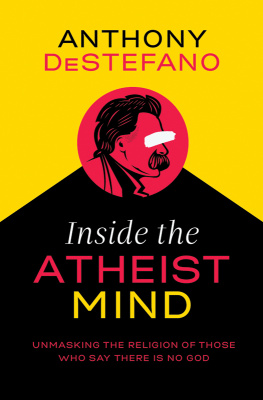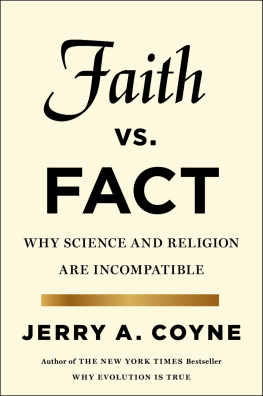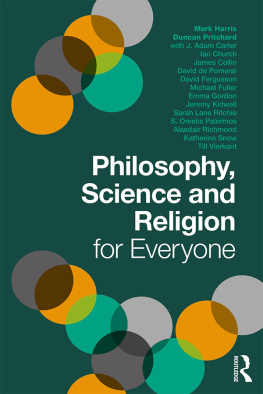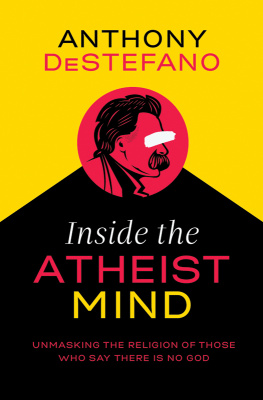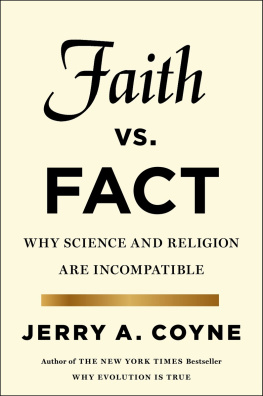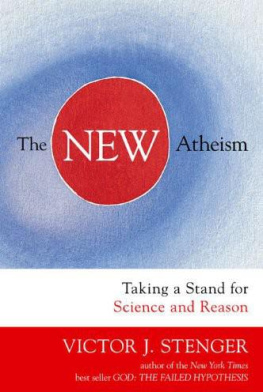The Last Superstition
Other titles of interest from St. Augustines Press
Aristotle, Aristotle On Poetics ; trans. S. Benardete & M. Davis
Aristotle, Physics, Or Natural Hearing
Joseph Owens, C.SS.R. , Aristotles Gradations of of Being in Metaphysics EH
St. Augustine, On Order [De Ordine]
Plato, The Symposium of Plato: The Shelley Translation
Thomas Aquinas, Commentary on Aristotles Metaphysics
Thomas Aquinas, Commentary on Aristotles Nicomachean Ethics
Thomas Aquinas, Commentary on Aristotles Posterior Analytics
Thomas Aquinas, Commentary on Aristotles De Anima
Thomas Aquinas, Commentary on Aristotles Physics
Thomas Aquinas, Disputed Questions on Virtue
John of St. Thomas, Introduction to the Summa Theologiae...
John Poinsot [John of St. Thomas], Tractatus de Signis
Roger Pouivet, After Wittgenstein, St. Thomas
Charles P. Nemeth, Aquinas on Crime
Francisco Suarez, S.J. , Metaphysical Demonstration to the Existence of God
Gabriel Marcel, The Mystery of Being (in two volumes)
Gabriel Marcel, Man against Mass Society
Gabriel Marcel, Homo Viator: Introduction to the Metaphysic of Hope
Josef Pieper, In Tune with the World
Josef Pieper, Happiness and Contemplation
Josef Pieper, Scholasticism
Josef Pieper, The Silence of St. Thomas
Fulvio di Blasi, et al., Ethics without God
Fulvio di Blasi, God and the Natural Law
Jacques Maritain, Natural Law: Reflections on Theory and Practice
Germain Grisez, God? A Philosophical Preface to Faith
Rmi Brague, Eccentric Culture: A History of Western Civilization
Predrag Cicovacki, Dostoevsky and the Affirmation of Life
Peter Augustine Lawler, Homeless and at Home in America
John C. Calhoun, A Disquisition on Government
Peter Geach, God and the Soul
Leszek Kolakowski, Religion: If There Is No God...
Peter Kreeft, The Philosophy of Jesus
Peter Kreeft, Jesus-Shock
Roger Scruton, The Meaning of Conservatism
Nalin Ranasinghe, Socrates in the Underworld: On Platos Gorgias
James V. Schall, The Regensburg Lecture
James V. Schall, The Sum Total of Human Happiness
Zbigniew Janowski, Augustinian-Cartesian Index
Zbigniew Janowski, How to Read Descartess Meditations
Copyright 2008 by Edward Feser
All rights reserved. No part of this book may be reproduced, stored in a retrieval system, or transmitted, in any form or by any means, electronic, mechanical, photocopying, recording, or otherwise, without the prior permission of St. Augustines Press.
Manufactured in the United States of America.
3 4 5 6 18 17 16 15 14 13 12
Library of Congress Cataloging in Publication Data
Feser, Edward.
The last superstition: a refutation of the new atheism /
Edward Feser.
p. cm.
Includes bibliographical references and index.
ISBN-13: 978-1-58731-451-3 (hardcover: alk. paper)
ISBN-10: 1-58731-451-7 (hardcover: alk. paper)
1. God. 2. Atheism. I. Title.
BL473.F47 2008
211 dc22 2008030859
Paperbound edition ISBN: 978-1-58731-452-0 (2010)
The paper used in this publication meets the minimum requirements of the American National Standard for Information Sciences - Permanence of Paper for Printed Materials, ANSI Z39.48-1984.
S T. A UGUSTINES P RESS
www.staugustine.net
Table of Contents
And when the orator instead of putting an ass in the place of a horse puts good for evil being himself as ignorant of their true nature as the city on which he imposes is ignorant; and having studied the notions of the multitude, falsely persuades them not about the shadow of an ass, which he confounds with a horse, but about good which he confounds with evil what will be the harvest which rhetoric will be likely to gather after the sowing of that seed?
Plato, Phaedrus
A small error in the beginning of something is a great one at the end.
St. Thomas Aquinas (paraphrasing Aristotle),
On Being and Essence
At the time of this writing, exactly one week has passed since the Supreme Court of the State of California decreed that homosexuals have a basic civil right to marry someone of the same sex. Whether these Golden State solons will follow up their remarkable finding with a ruling to the effect that an ass is the same as a horse, it is too early to say; but they have already gone well beyond the sophistical orator of Platos dialogue in confounding good with evil, not to mention reason with insanity. Malcolm Muggeridge famously said that without God we are left with a choice of succumbing to megalomania or erotomania. The courts majority, in declaring by sheer judicial fiat the equal dignity under law of the family and sodomy, would appear to have gone Muggeridge one better by succumbing to both at once.
The reference to God is apropos. The successes of the movement to recognize same-sex marriage have been nothing if not sudden. Just over a decade ago the very idea would have been laughed off as crackpot or extreme; now it is those who oppose it who are frequently labeled crackpots and extremists. But equally sudden has been the rise of ostentatious unbelief as the de rigueur position of the smart set. Mainstream progressives and non-conformists of earlier generations would have found it necessary to profess belief in at least a social gospel and to hide their doubts about the metaphysical claims of religion behind a haze of pseudo-theological psychobabble. Yet atheist chic is now, out of the blue as it were, the stuff of best sellers, celebrity endorsements, and suburban reading groups. It is as if the urbane cocktail hour secularist liberalism of the twentieth century has, by way of the slow but sure inebriation produced by an unbroken series of social and judicial triumphs, now become in the twenty-first century fall-down-sloppy drunk and lost all inhibition, by turns blaspheming, whoring, and otherwise offending against all sane and decent sensibilities as the mood strikes it.
The confluence of these developments is no accident, though not for the reasons liberal secularists suppose. To their minds (or what is left of them) sexual libertinism and contempt for religion, as public , mass phenomena (rather than as the private eccentricities of a decadent elite, which of course have always been with us) constitute the final victory of reason, twin fruits of the modern scientific worldview whose full consequences are only now becoming widely perceived over four centuries after its birth. But in reality they are (to paraphrase Aquinas paraphrasing Aristotle) two very great errors that have followed gradually but inevitably, not upon any actual finding of modern science, but rather upon what might at first glance seem at most a relatively small error of a philosophical nature committed by the founders of modern science and modern philosophy.
This is a book about that error: about what the error is, why it is an error, what its consequences are, and how correcting it reveals that it is a (certain kind of) moral and religious traditionalist, and not the secular liberal, who is the true upholder of reason.
Disgust and distress over the New Atheism of Richard Dawkins and his ilk and at the near total collapse of traditional morality represented by same-sex marriage and related phenomena were only half of the motivation for my writing the essay that follows. The other half was disgust and distress over the largely inept and ineffective (as it seems to me) response to these developments put forward by many religious and political conservatives. Rather than counter the skeptics false assertion that religion is necessarily based on faith (in the bastardized sense of the will to believe something in the absence of evidence), too many contemporary defenders of religion seem content to suggest that lots of what secularists believe is also based on faith, that religious belief is in any case here to stay and has certain social benefits, and so on. In the face of judicial decisions like the one recently made in California, too many conservatives natter on about whether it ought to be the courts or the people who get to define marriage, effectively conceding to their opponents the idiotic supposition that the question fundamentally concerns what meaning we ought arbitrarily to attach to a certain word.
Next page
